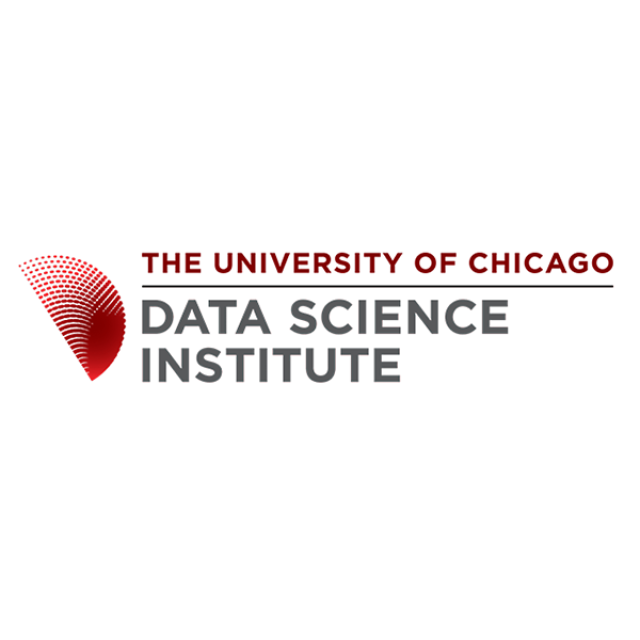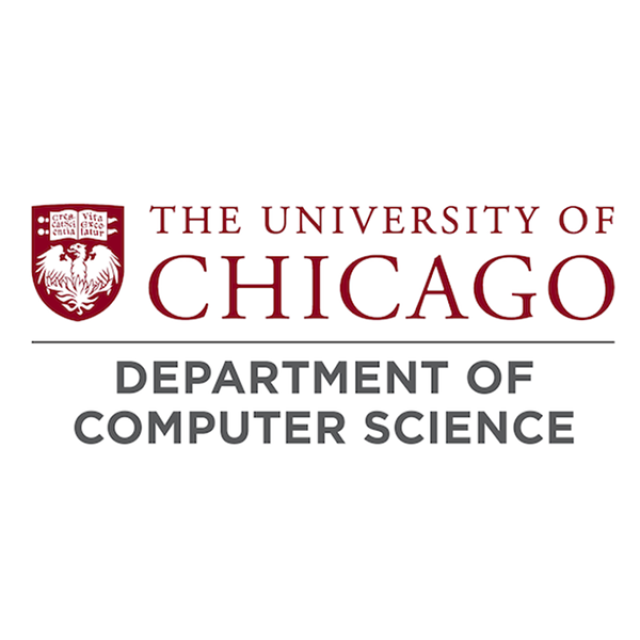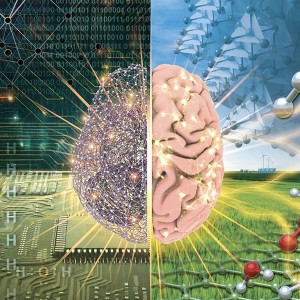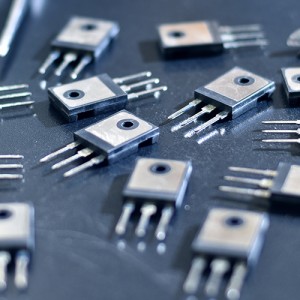
Leading research at the intersection of AI and engineering
PME researchers are integrating AI technology with their domain knowledge in immunoengineering, materials systems, and quantum engineering to improve and accelerate our capacity to address important societal problems.
Adoption of AI in molecular and quantum engineering could offer advances in areas such as cancer treatment, drug delivery, renewable energy, and cyber security. PME researchers are already using large-scale machine learning to tackle some of humanity’s greatest challenges, including creating more effective vaccines and cancer immunotherapies, building artificial proteins, and locating new companion materials for biocompatible electronics.
AI at PME is part of the broader UChicago efforts in AI + Science.
UChicago PME research in AI is centered around three broad goals

AI-guided design-build-test-learn loops and/or autonomous discovery (“self-driving labs”)
PME researchers are augmenting traditional theoretical, computational, and experimental modes of inquiry with AI to massively accelerate molecular modeling and simulation, design new molecules, proteins, drugs, and quantum materials with higher efficiency and accuracy, and develop self-driving labs combining AI and automated robotics.
(PME faculty currently engaged in this area include Junhong Chen, Laura Gagliardi, Margaret Gardel, Liang Jiang, Andrew Ferguson, Y. Shirley Meng, Samantha Riesenfeld, Sihong Wang)

AI for molecular materials and systems understanding, discovery, and design
Researchers in PME are using AI to develop new foundational methods and tools to massively accelerate molecular and materials simulations, develop new models of materials with quantum-level accuracy, establish new techniques for error correction in quantum communication, and build new models for data-driven molecular and protein design.
(PME faculty currently engaged in this area include Junhong Chen, Laura Gagliardi, Giulia Galli, Margaret Gardel, Andrew Ferguson, Nicolas Chevrier, Samantha Riesenfeld)

Development of AI-enabled algorithms and computing hardware
PME researchers are developing new AI and ML algorithms (including eXpalinable AI and physics-aware AI) to extract patterns and correlations in high-dimensional complex biological data sets, design new molecules, proteins, and reticular materials for carbon capture and catalytic applications, and enable new quantum technologies. They are also working on the development of novel electronics (e.g., neuromorphic computing) that can serve as the hardware for implementing AI and ML with lower power consumption and lower carbon emissions.
(PME faculty currently engaged in this area include Chibueze Amanchukwu, Andrew Ferguson, Rama Ranganathan, Sihong Wang)

Collaborations and Opportunities in AI
Pritzker Molecular Engineering researchers collaborate with colleagues at the University of Chicago, at Argonne National Laboratory, and at more than twenty other research institutions. PME also provides unique opportunities to early-career scientists and engineers who wish to advance AI methods and applications in the domains of immunoengineering, materials systems, and quantum engineering.







